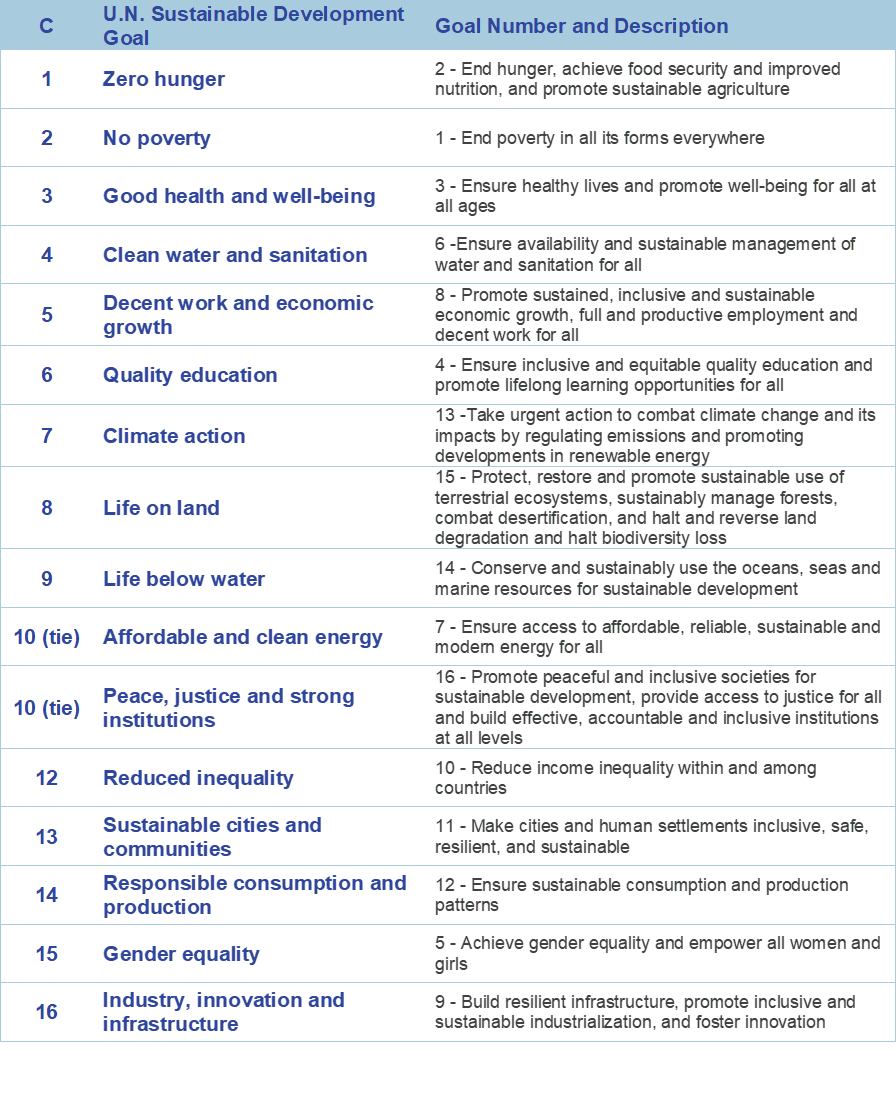Global public ranks ending hunger and poverty and ensuring healthy lives as top priorities among U.N. SDGs
A new Ipsos survey conducted in partnership with the World Economic Forum about the United Nations’ Sustainable Development Goals finds “zero hunger”, “no poverty” and “good health and well-being” ranking as the global public’s top priorities.
In 2015, world leaders agreed to 17 goals (also referred to as “SDGs”) for a better world by 2030. They engage governments, the private sector, civil society and citizens to achieve a better and more sustainable future for all. Ipsos asked 20,000 adults from 28 countries to rank 8 randomly selected SDGs among 16 of them, in order of priority to address today. Each of the 16 goals was evaluated by close to 10,000 respondents.
The survey finds a remarkable consensus among citizens from all regions of the world when it comes to top priorities.
- “Zero hunger”, the SDG most viewed as a priority globally, ranks #1 in 20 of 28 countries and is in the top 3 of 6 other countries
- “No poverty”, the #2 priority globally, ranks #1 in 4 countries and is in the top 3 of 20 other countries
- “Good health and well-being”, the #3 priority globally, ranks #1 in 4 countries and is in the top 3 of 13 other countries
Furthermore, all three of the next priority goals based on the global ranking show in the top 3 of 9 countries:
- “Clean water and sanitation”,
- “Decent work and economic growth”, and
- “Quality education”
All top 3 goals of most countries count among the global top 6. Only 5 other SDGs show in the top 3 of any country: “climate action” at #3 in Great Britain, “life below water” at #3 in Germany; “peace, justice and strong institutions” at #3 in South Korea; “reduce inequality” at #3 in Belgium; and “gender equality” at #3 in India.
The global priority ranking based on the average ranking of all 16 goals in the 28 countries surveyed is as follows:

On average across all the countries surveyed, half of those asked say their government is taking less than their share of responsibility for achieving these goals (53%) while about four in ten say so of businesses in their country (42%) and of “most people” in their country (40%). However, for each of their country’s government, businesses and people, an average of 22% say they are taking more than their share of responsibility.
- A majority think their government is skirting its responsibility in 20 countries—most so in Hungary, (71%), Colombia (69%), South Africa (69%), and Brazil (67%).
- A majority think businesses are not doing enough in Chile (56%) Canada (55%), Turkey (55%), Great Britain (54%), Italy (52%) Hungary (52%), and Colombia (51%)
- A majority are critical of “most people” in their country not doing enough in Turkey (60%), Hungary (56%) Italy (53%), and Canada (52%).
Read the World Economic Forum article.



